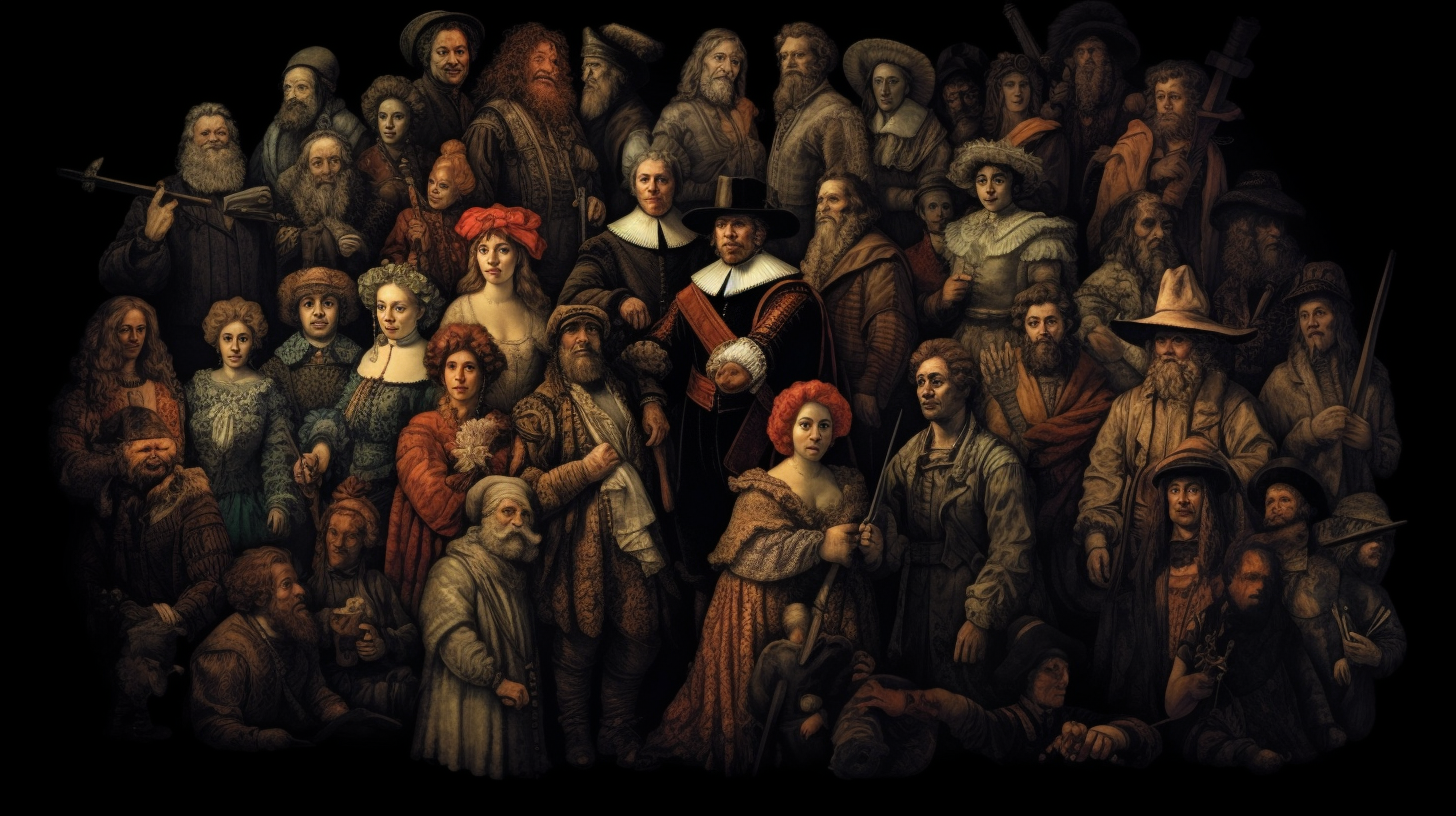I’m with John Boyd on this one: the closer to you look at something, the more distinctive the contradictions you’re going to see, all the way down as far as you can squint. In this post, I’ll look at the distinction between honesty, error, deception, and fraud – and will conclude with a heuristic. We don’t experience ground truth. We experience something as a result of data that flows into our skull that is constructed into something approximating an experience. But we don’t ever truly experience a state of ground truth. And this isn’t meant to be some kind of satire about who’s to say what is really true and what is really untrue given how one feels about the[…]
Category: Technology
Perspective coordination can be a need, skill, solution, or a problem. Dawson (2020) defined perspective coordination as: “…a dynamic set of skills that supports human interactions by fostering mutual respect, nurturing creativity, expanding our minds, generating and developing ideas, leveraging conflict, and supporting healthy relationships. Robust collaborative capacity skills are a prerequisite for the development of perspective coordination skills, but you will also find that practices for building perspective coordination skills build collaborative capacity skills. Wheels within wheels.” Dawson, Theo (2020) “VUCA unpacked (3)—Perspective coordination” https://theo-dawson.medium.com/vuca-unpacked-3-perspective-coordination-13e722981ce6 Retrieved 1 Jan 2024 And Dawson provided a helpful concept map: Why might perspective coordination might be a need? It’s because you need people. If you had total independence, total freedom from dependents and their dependencies,[…]
Cultural industries are an ideas business. They sell ideas. The Canadian cultural industry, since just around Confederation, sells the idea of Canada. Is Canada a good idea? Does anybody want to buy it? Is there a market for it? What is? All businesses rely on networks of channels. There’s power in networks. There’s power in distribution networks. The Canadian state, since its inception, invested in networks. There were promises of network connectivity built right into Constitution. It had to then. It has to continue to do so now. There’s just too much physical geography to ignore. And not a lot of that geography it is helpful to the social geography of the country. Look at the place: The rockies run[…]
I want to believe that the current generation of applications powered by Large Language Model (LLM) don’t represent the height of the state of the art for prediction machines and that no single firm will reach 80% market share and go onto dominate the generative era. I want to believe that the future is quite open, and that these early returns we’ve made in applied machine learning can compound. It’s because I want to believe so much that it’s worth questioning the assumptions. What might cause the future to become closed? Does OpenAI scan its API logs for good ideas? In 2023, a surge of founders developed skins for OpenAI’s ChatGPT. Some based their startup on enabling a user to[…]
This story begins in a lecture room on an upper floor at Temple University in Philly on a pleasant summer day in 2018. John Hauser is delivering a cracking talk on recommendation engines. He launches into an aside about how the best real estate agents on earth facilitate their consumers’ own discovery of their own preferences. He’s challenging conventional doctrine. The grizzled grizzlies fold their arms and lean back in their chairs. The students from KU lean forward. I catch Luo’s eye and exchange smiles. We’re beaming. I got my popcorn ready. This is gonna be good. He tells a story about how an excellent real estate agent will listen patiently as you state preferences, and then they go onto[…]
I heard a belief on September 10, 2023 in Singapore: ~”When people lose money, they learn, they become more intelligent.” And I thought – huh. That’s kind of neat. I want to believe that. Is that true? Why do I want to believe that? I want to believe that it’s true because that would be awesome! It would mean diminishing returns for the wolves. Sure, a sucker is born is every second, but maybe a hundred are converted into skeptics every minute? If it was true, the world become progressively better. The population vulnerable to raiding, to fraud, to injustice, would be diminishing all the time. Sure, collectively, we would never get to zero, but it would approach some asymptote,[…]
I’m sorting out much of what I read of Gregory Bateson (1904-1980). And in his tradition, I’m going to make connections and then try to stand above it. Come and play. My entry point was Steps to an Ecology of Mind (1972), then I shot off into A Sacred Unity: Further Steps to an Ecology of Mind Edited by Rodney E Donaldson (1991) and then Nora Bateson’s Small Arcs of Larger Circles (2016). I’ve been thinking a lot about the question David Graeber and David Wengrow asked in The Dawn of Everything (2021): why do groups of people differentiate? Bateson’s observation of schismogenesis – a combination of the word schism and genesis – is “a process of interaction whereby directional[…]
Moderation is a difficult good. Which is why I watched, curiously, amused, mystified, at Reddit CEO Steve Huffman’s behaviour in June, 2023. NBC News reported: “Reddit CEO slams protest leaders, saying he’ll change rules that favor ‘landed gentry’: Steve Huffman, the Reddit CEO, told NBC News in an interview that a user protest on the site this week is led by a minority of moderators and doesn’t have wide support.” Reddit has a system that creates a system by which moderators, creators, and lurkers learn about their preferences, share knowledge, and share knowledge about sharing knowledge. It’s delicate. It’s reddit’s core asset. Which is why I’ve been mystified by Huffman’s behaviour. Let’s zoom out and look at Moderation and the[…]
Paul Graham wrote on May 9: “Observation suggests that people are switching to using ChatGPT to write things for them with almost indecent haste. Most people hate to write as much as they hate math. Way more than admit it. Within a year the median piece of writing could be by AI. … I warn you now, this is going to have unfortunate consequences, just as switching to living in suburbia and driving everywhere did. When you lose the ability to write, you also lose some of your ability to think. I don’t have the slightest hope of averting this switch. I often tell startups it’s safe to bet on laziness, and this is one of the biggest bets on[…]
Assume that not all Need-Solution Pairs [1] have been discovered and that the diffusion of new solutions is Bassian [2]. What is going on with Web3? By Web3, I mean the set of technologies that includes decentralized applications (dApps), distributed ledger, protocols, Decentralized Autonomous Organizations (DAOs) and related cryptographic technologies. It’s a superset that doesn’t just include decentralized finance (DeFi) and regenerative finance (ReFi), decentralized science (DeSci), memecoins, shitcoins, Non-Fungible Tokens (NFTs) and cryptocurrencies, smart contracts and oracles, but all the things rooted on Peer to Peer, decentralized technology and the general concept of trustlessness. Web3 suffers from the same accessibility problems that the World Wide Web suffered from in early 1990s. It was brutal to dial up and log[…]










